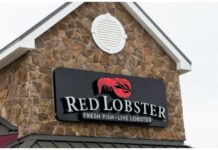Attorney Antonio Moore discusses the recent report “What We Get Wrong About Closing The Racial Wealth Gap” with Political Commentator Yvette Carnell in a 2 of 3 part series on wealth & race in America. Read the Full Economic Report Here
Moore and Carnell dig into a historical, and current economic analysis of black celebrity, the principles of Claud Anderson’s acclaimed book Powernomics, and the reality of extreme wealth calcification in its current form. (Watch Diddy Instagram Video Below)

According to The Root.com in the piece “No, Personal Responsibility Won’t Solve Inequality: New Study Dispels Common Myths Behind Racial Wealth Gap“,
Meanwhile, solutions like banking black or brushing up on financial literacy simply can’t address the scope and depth of the problem.
“Black businesses and banks cannot thrive on a separate and unequal playing field,” the study finds. “Even if we accept the estimated $1.2 trillion total of ‘black buying power’”—an oft-repeated figure of murky origins—“as valid, it still is only 60 percent of the value of J.P. Morgan’s total assets.”
And so-called commonsense solutions like financial literacy programs, while beneficial in some ways, don’t address the actual causes of the racial wealth gap. In fact, they imply that poor decision-making or lack of financial knowledge is at fault for the ever-increasing gap, and not larger systemic decisions and policies, like redlining and predatory lending.
“Meager economic circumstances—not poor decision-making or deficient knowledge—constrain choices and leave asset-poor borrowers with little to no other option but to use predatory and abusive alternative financial services,” the report’s authors write.
The report, which comes out of the Samuel DuBois Cook Center on Social Equity and the Insight Center for Community Economic Development, also dispels the myth that black people don’t value education or are less ambitious than other minorities, finding that when controlled for household type and socioeconomic status, black families tend to be more supportive than white families of their children’s education through direct financial support.
The study also observes that, in the case of Asian Americans, who are often pitted against other racial groups as “model minorities,” the role that institutions played in supporting their businesses is underemphasized. Using Korean-American entrepreneurs as an example, the report outlines how discrimination against black business owners “by default” helped Korean entrepreneurs in many U.S. cities where they share the same communities with black people.
One of the study’s authors, Antonio Moore, a Los Angeles-based attorney and producer, penned an article for Fortune magazine that highlighted the importance of pushing out these sorts of reports.
“The imagination required to move toward closing the racial wealth gap in America requires a daring that moves us beyond mythology. Real national programs, not myths, will move us toward answers for closing the gap in wealth between the races,” Moore wrote.
We Publish News 24/7. Don’t Miss A Story. Click HERE to SUBSCRIBE to Our Newsletter Now!





